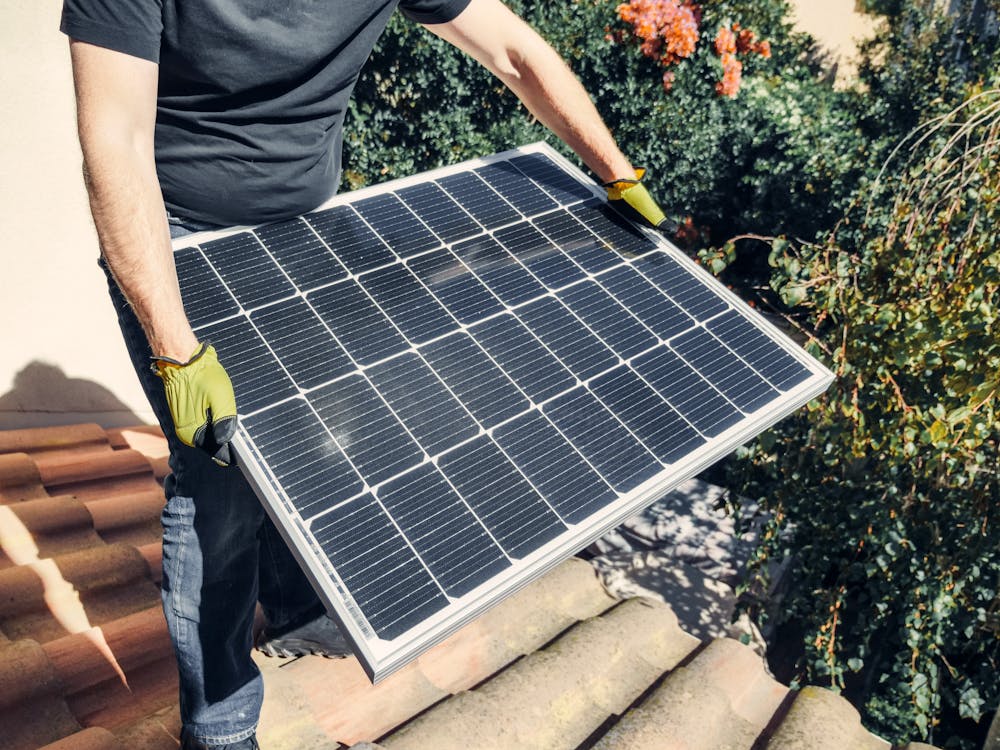Solar Battery Storage: Is It Worth the Investment?


Zain Malik
Solar Technology Expert
As solar energy becomes more popular in Pakistan, many homeowners are considering adding battery storage to their solar systems. But is it worth the additional investment? This article explores the benefits and drawbacks of solar batteries to help you make an informed decision.
Understanding Solar Battery Storage
Solar battery storage allows you to store excess electricity generated by your solar panels for use when the sun isn't shining or during power outages. Instead of feeding excess electricity back to the grid (as with net metering), you can store it in batteries for later use.
Types of Solar Batteries
Lithium-Ion Batteries
Lithium-ion batteries are the most common type used for residential solar storage. They offer high energy density, longer lifespans (10-15 years), and deeper discharge capabilities. Popular options include Tesla Powerwall, LG Chem RESU, and Sonnen batteries.
Lead-Acid Batteries
Lead-acid batteries are a more affordable option but have shorter lifespans (5-10 years) and lower depth of discharge. They require more maintenance and take up more space than lithium-ion batteries.
Flow Batteries
Flow batteries are a newer technology with very long lifespans (20+ years) and the ability to be fully discharged without damage. However, they are currently more expensive and less compact than lithium-ion batteries.
Benefits of Solar Battery Storage
Energy Independence
With battery storage, you can use your own solar-generated electricity day and night, reducing your reliance on the grid and increasing your energy independence.
Backup Power During Outages
In areas with unreliable grid electricity (a common issue in many parts of Pakistan), battery storage provides backup power during outages. This can be invaluable for keeping essential appliances running.
Maximizing Self-Consumption
Batteries allow you to maximize the use of your solar-generated electricity. Instead of exporting excess electricity to the grid during the day and buying it back at night, you can store and use it yourself.
Time-of-Use Optimization
If your utility has time-of-use rates (where electricity costs more during peak hours), batteries can help you avoid using grid electricity during these expensive periods.
Drawbacks of Solar Battery Storage
High Initial Cost
The biggest drawback of solar batteries is their cost. A quality lithium-ion battery system can add 500,000 to 1,500,000 PKR to your solar installation, depending on capacity and features.
Limited Lifespan
Even the best batteries have limited lifespans and will need replacement eventually. Most lithium-ion batteries last 10-15 years, while solar panels typically last 25+ years.
Maintenance Requirements
Some battery types (particularly lead-acid) require regular maintenance to ensure optimal performance and longevity.
Space Requirements
Batteries take up physical space, which can be a consideration for homes with limited installation areas.
When Battery Storage Makes Sense
Battery storage is most likely to be worth the investment in these scenarios:
- Frequent Power Outages: If you experience regular grid outages, the value of having backup power may justify the cost.
- No Net Metering: If net metering isn't available in your area, batteries allow you to make use of excess solar production.
- High Electricity Rates: In areas with very expensive grid electricity, especially during peak hours, batteries can provide significant savings.
- Energy Independence Goals: If reducing your reliance on the grid is a priority for environmental or personal reasons.
When Battery Storage May Not Be Worth It
- Reliable Grid with Net Metering: If you have reliable grid access and favorable net metering policies, the financial case for batteries is weaker.
- Budget Constraints: If adding batteries would strain your budget, it might be better to invest in a larger solar system first.
- Limited Energy Usage at Night: If your household uses minimal electricity during non-sunlight hours, batteries provide less benefit.
Calculating the Return on Investment
To determine if batteries make financial sense for your situation, consider:
- The cost of the battery system
- The amount of additional self-generated electricity you'll be able to use
- The cost of grid electricity you'll avoid purchasing
- The value of having backup power during outages
- Available incentives or subsidies
A professional solar installer can help you run these calculations based on your specific energy usage patterns and local electricity rates.
Conclusion
Solar battery storage can be a valuable addition to your solar system, particularly if you experience frequent power outages or want to maximize your energy independence. However, the high upfront cost means it's not the right choice for everyone.
At Solar Express, we can help you evaluate whether battery storage makes sense for your specific situation and recommend the best battery options if you decide to proceed. Contact us today for a personalized consultation.
Share this article
Related Articles

How to Choose the Right Solar Panels for Your Home
Learn about the different types of solar panels available and how to select the best option for your specific needs and budget.
Read More
Understanding Net Metering in Pakistan
Everything you need to know about net metering policies in Pakistan and how they can help you maximize your solar investment.
Read More